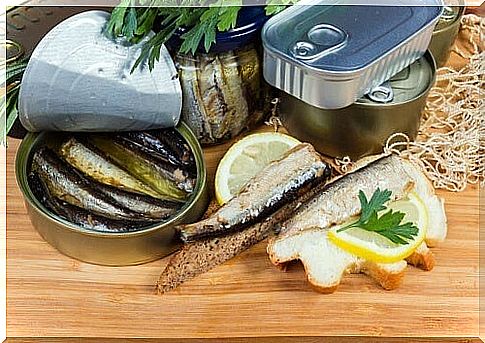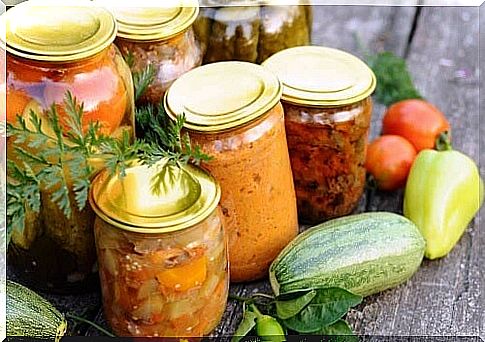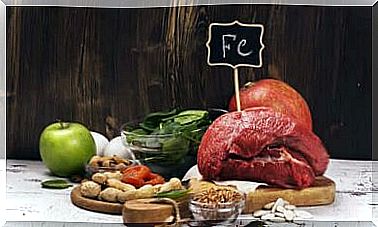Canned Foods: Consume The Preservative Liquid?

Canned foods allow us to enjoy seasonal foods all year round. With canning, the nutritional qualities of food are preserved, while at the same time guaranteeing perfect hygiene. In addition to this, the homemade version known as preserves allows us to preserve food surpluses, avoiding their deterioration.
However, there is still the question of whether or not to consume canned food preservation liquid . In some cases, this liquid contains good doses of beneficial micronutrients.
In others, however, it is made up of additives or large amounts of sodium, which is always best to avoid. In the next few lines we will explain in detail when it is appropriate to consume it and when it is better to eliminate it.
Canned foods and preserves: fish
In the case of fish, the liquid (generally oil) has the purpose of guaranteeing the correct conservation of the product. Since the fat-soluble vitamins dissolve in the oil, it is advisable to consume it to avoid nutrient loss.
Vitamin D deficiency is endemic in the population. Low values of this substance are associated with an increased risk of cardiovascular disease, according to this scientific article published in 2016.
Oily fish, such as tuna, often eaten canned, is one of the few foods that can provide significant doses of this vitamin. Discarding the oil contained in the can is therefore equivalent to reducing the supply of this important nutrient.
In other cases, the fish preservation liquid consists of a solution of water and salt, called brine. Consumption, in this case, may not be as beneficial, as it would lead to an increase in sodium levels in the body.
Consuming high doses of sodium is associated with an increased risk of hypertension, according to this article published in the journal Nutrients . This is a detail to consider if you intend to consume canned fish preservation liquid.

Canned foods and preserves: vegetables
Most canned vegetables contain a preservative liquid consisting of water, ascorbic acid, and sometimes salt. For this reason, consumption is completely harmless, as long as it is not necessary to comply with restrictions on the daily consumption of sodium.
However, it is always best to read the label to check for any additives present. If other preservatives are present in addition to ascorbic acid, it is recommended to consume the liquid in moderation.
However, some canned products, such as legumes, are washed before being included in culinary preparations, as the liquid contained alters their taste.
In any case, the consumption of the liquid present in canned vegetables allows to avoid the loss of water-soluble vitamins, such as those of group B, which could dissolve in the liquid during the storage process and heat treatment.

Canned vegetables, a highly recommended product
Although the consumption of fresh foods is preferable to processed or packaged foods, it should not be forgotten that canned vegetables are a highly recommended product. They have almost the same nutritional properties as fresh varieties and a more than acceptable organoleptic quality.
In addition to this, they allow us to consume food out of season and to have an adequate supply of food for large consumption. What’s more, they are quite inexpensive.
Is it healthy to consume the preservative liquid?
Canned foods are a highly recommended alternative to your usual diet. In general, the consumption of the preservation liquid contained within the product is harmless to human health.
On the other hand, it is always important to read the nutrition label. In the case of products containing too many preservatives, in addition to sodium and ascorbic acid, it is always better to limit the consumption of the preservative liquid.
However, these are quite rare cases and more frequently foods are immersed in a brine that is harmful only for hypertensive subjects.









